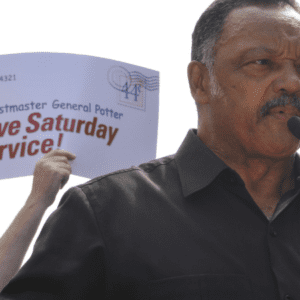November 18, 2009
Pay Raise Set for Nov. 21
APWU-represented postal workers will receive a 1.2 percent increase in their annual salaries effective Nov. 21. The raise will be reflected in the paychecks issued Dec. 11, and will be based on the grades and levels in effect on Sept. 6, 2006. The increase will apply to employees covered by the APWU-USPS 2006-2010 contract.
“The Collective Bargaining Agreement is our union’s strongest achievement,” said APWU President William Burrus. “At a time when the Postal Service is experiencing severe financial difficulties, the contractual commitment must be honored, and the required 1.2 percent pay increase must be paid. Despite excessing, reassignments, and early retirements, the raise must be granted.
“With the salary increases, upgrades and cost-of-living adjustments, wages for the vast majority of APWU members have increased by approximately $3,800 under the current contract,” he said. “In these difficult times, that is quite an accomplishment.”
The agreement expires Nov. 20, 2010. Under a separate contract of similar duration, Operating Services employees at USPS Headquarters in Washington and at a facility in nearby Merrifield, VA, also will receive a 1.2 percent raise Nov. 21. (APWU-represented employees in Information Technology/Accounting Services will receive a 1.2 percent raise Jan. 16; their contract runs to Jan. 2011.)
Per APWU bylaws, an across-the-board contractual salary increase results in a dues adjustment. This raise will lead to a 62 cents per member per pay period increase in dues for career employees, and an increase of 40 cents per member per pay period for Transitional Employees. Thirty-nine cents of the 62-cent increase will go to the career employees’ locals, and 23 cents will go to the national union, including the union’s private-sector organizing fund.
Updated pay scales were included in the Nov./Dec. edition of The American Postal Workermagazine, and are posted on the Pay Information pages of www.apwu.org.
Members Urged to Support Healthcare Reform
APWU members are being asked to contact their U.S. Senators and urge them to support healthcare reform legislation.
“Our nation desperately needs healthcare reform,” said APWU President William Burrus. “A strong public option is essential in order to ensure that our nation’s healthcare system is made more affordable for all.
“Every time we negotiate a contract, the rising cost of health insurance becomes a point of contention,” the union president noted. “Real reform will reduce premiums for everyone, including those of us who are fortunate enough to have good healthcare coverage.”
“We must ensure that procedural maneuvers designed to derail legislation are unsuccessful,” he said.
Burrus noted that the Federal Employee Health Benefit program Open Season began Nov. 9 and extends to Dec. 14. “We offer two great insurance options,” he said. “I encourage all postal workers and federal employees to give them serious consideration.
While the costs of other FEHB plans are increasing at an average of 8.8 percent, the cost of the APWU High Option is increasing by only 4 percent; premiums for the Consumer Driver Option will not increase at all. “The Consumer Driver Option is one of the best bargains available,” Burrus said, noting that the USPS pays 95 percent of the costs for APWU members in the plan.
Penalty-Overtime, Casual-Exception Periods Set
As referenced in Article 8, Sections 4 and 5, of the 2006 National Agreement, there are four consecutive service weeks each year during which penalty overtime regulations are not applicable. This year, the period begins Dec. 5 (first day of Week 1 of Pay Period 26-09) and ends Jan. 1, 2010 (last day of Week 2 of PP 1-10).
Article 7.1.B.5 of the Collective Bargaining Agreement provides exceptions to the 6 and 11 percent casual caps during accounting periods 3 and 4 of the Fiscal Year. For FY2010, the exception period is from Nov. 21, 2009, through Jan. 15, 2010.



